现状
在dhorse 1.4.0版本之前,一直使用k8s官方提供的sdk与k8s集群交互,官方sdk的Maven坐标如下:
<dependency>
<groupId>io.kubernetes</groupId>
<artifactId>client-java</artifactId>
<version>18.0.0</version>
</dependency>
但是自从1.4.0版本以后,dhorse开始支持fabric8的sdk,fabric8的sdk的Maven坐标如下:
<dependency>
<groupId>io.fabric8</groupId>
<artifactId>kubernetes-client</artifactId>
<version>6.9.0</version>
</dependency>
那么,为什么要替换为fabric8的sdk与k8s交互呢?
k8s官方与fabric8的对比
1.社区方面
两者的关注度上,都差不多,没有太大差别;
但是,fabric8的sdk提供的文档和示例更加完善,而k8s官方提供的示例较少;
2.功能方面
fabric8不仅支持k8s,同时也支持OpenShift,而官方sdk支持k8s;
3.包大小
k8s官方sdk依赖的sdk过大,有30M左右,而fabric8只有不到10M;
使用官方的sdk也会导致dhorse的安装包过大。
4.API使用方面
举个例子,以查询k8s集群的命名空间列表为例,说明代码如下。
官方:
ApiClient apiClient = this.apiClient(clusterPO.getClusterUrl(), clusterPO.getAuthToken());
CoreV1Api coreApi = new CoreV1Api(apiClient);
List<ClusterNamespace> namespaces = new ArrayList<>();
String labelSelector = null;
if(pageParam != null && !StringUtils.isBlank(pageParam.getNamespaceName())) {
labelSelector = "kubernetes.io/metadata.name=" + pageParam.getNamespaceName();
}
try {
V1NamespaceList namespaceList = coreApi.listNamespace(null, null, null, null,
labelSelector, null, null, null, null, null);
} catch (ApiException e) {
String message = e.getResponseBody() == null ? e.getMessage() : e.getResponseBody();
LogUtils.throwException(logger, message, MessageCodeEnum.CLUSTER_NAMESPACE_FAILURE);
}
fabric8:
try(KubernetesClient client = client(clusterPO.getClusterUrl(), clusterPO.getAuthToken())){
ListOptions o = new ListOptions();
if(pageParam != null && !StringUtils.isBlank(pageParam.getNamespaceName())) {
o.setLabelSelector("kubernetes.io/metadata.name=" + pageParam.getNamespaceName());
}
namespaceList = client.namespaces().list(o);
}
可以看出,官方提供的API接口不够简洁,而且抛出了不必要的异常。
结论
综上,dhorse后续版本会默认选择fabric8的sdk与k8s器群交互,并计划在v1.6的版本里下掉k8s官方的sdk。

